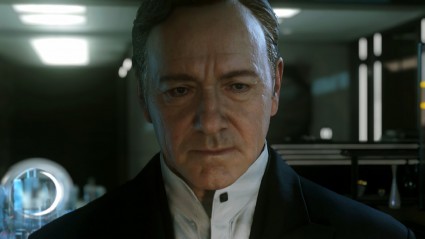Features & News
Team Talk: Are annualised games a good thing?
October 15, 2014, Author: Andy Buick
We’re getting to the time of year when we get an avalanche of annual releases, with a plethora of sports titles, and the usual suspects in Call of Duty and Assassin’s Creed. Are these titles a good thing or is it time the business model changed?
The TIMJ team give their thoughts below.
Jonn Blanchard – Staff Writer
Annual releases are a bad trend and one that seems to be rapidly moving from sports titles to more mainstream games – I’m looking at you Call of Duty. With an annual release schedule, there is no time for real technical advances or new game ideas, instead we get saddled with cut and paste gameplay, half-baked changes to existing functionality and a storyline that sounds like it was written in five minutes.
I realise a lot of these complaints don’t really affect sports titles, but the fact is, DLC could easily allow the publishers of any game to offer the same extras as a new annual release and they could still get some money.
Simon Weatherall – Site Manager
I think annual releases depend on the development period and the genre. If a company is just blasting out sequel after sequel for the sake of making money then I think it’s a bad thing. If they have multiple teams that are making various sequels and each is giving the sequel 100% then it could be a good thing.
On the flip-side, I find Call of Duty lacking in so many areas and have often described it as the shooting equivalent of a football game; out every year with few additions and lots of issues. I have given some of the recent incarnations a good go, but always found them lacking. Something which annoyed me with Ghosts was that the PS4 version was the same as the PS3 version. They couldn’t even be bothered to give you a compelling reason to invest in the next-gen version, just charged you a great deal more for the privilege.
The main criteria for me is the genre. Sports games are now known for their annual releases and they always try to mix it up a bit. I personally don’t follow the trend, but I can see why it’s a good thing. Updates to team rosters and new players added, with lots of improvements and a few new game modes.
I think a lot of what is added in a new game can actually prolong the use of an older version with the use of regular DLC. Some of the greatest franchises have released games that have promoted replay and a prolonged experience over a re-skinned version of the last game with a new story and that’s about it.
So, basically, annual releases for me work in some situations but not in others. Honestly, I think publishers have realised we are all sheep and will buy anything based on the name. Even if we know that something will be sloppy, require months of updates and be completed in a matter of hours. I know it will continue to happen especially while people tart up old ideas and call them innovation.

Call of Duty this year has added Kevin Spacey, but more importantly, will the suits that the protagonists wear make for a genuinely different experience?
Phil Ubee – Contributor
Even as a massive fan of sports games I have to say I think that annual releases are 100% bad. There are a number of examples here, but generally speaking, year on year the enhancements and improvements are minuscule. Sure, you get a roster update, something EA actually provide every week of the season on their games, and a slightly glossier product but that’s nowhere near enough to warrant the investment.
FIFA, for example, has essentially used the same PR for the past three years, talking about ball physics and Player A.I. and yet, if you compare the versions closely there is very little between them. Personally, I believe PES suffered its demise because of the need to produce a game every year and ten years on they are still trying to claw that back. Having played the demo on Xbox One, it is abundantly clear that they have benefited from not releasing their game on new-gen last year, and having a bit more time to develop.
Sports fans are arguably the worst culprits of keeping this trend going, though, as we moan in forums every year about the lack of additional content and the same old flaws reappearing, but then, still we go and spend our hard earned money to get the latest kits and players. Personally I’d like to see EA produce FIFA every other year with Konami doing the same with PES and alternating them. That would give me a genuine reason to own the latest copy of both and I am convinced they would both be better games for it. Alas, it will never happen.

FIFA 15 is out now. Probably with things like improved grass, and shinier alice bands (now on Gareth Bale – what are you doing man…)
Matt Parker – News Editor
I’ve got to say that I don’t think annualised franchises are a great idea. A year simply isn’t enough time to create and implement meaningful differences. It wouldn’t be so bad if annualisation guaranteed some sort of improvement, but often you’ll see features inserted that are half-baked and downright detrimental to the game.
Assassin’s Creed tried out some awful tower-defense mini-game one year. That was awful. Need For Speed has suffered thanks to forced attempts at making ‘improvements’.
On top of this, the stories of these franchises often become muddied and convoluted. Assassin’s Creed, I’m looking at you again.
Annualisation is basically a case of supply and demand. People will buy these things, so these things get made. It’s nothing to do with a ‘grand vision’ or a ‘need to tell a tale’. It’s about cold, hard cash.
Then again, what isn’t?
Matt Best – Staff Writer
Annualised releases aren’t necessarily a bad thing. I remember the early days of Assassin’s Creed when it went from ACII to Brotherhood to Revelations. There was enough differentiation between releases to make them worthwhile – except for that horrible tower defence thing. Now that we see a new Assassin’s Creed every 2.4 months, it’s coming across more as a cheap cash grab than any real desire to grow the franchise and offer value for the devotees.
Over-frequent releases – even annual ones – can potentially work against the franchise as fans get fatigue. Again, I use Assassin’s Creed as an example as it’s the main offender. I was a big fan in the early days, hell I didn’t even mind AC III, but now it’s a case of ‘enough already’. I liked the Desmond/Abstergo back-story, but that seems now to be a sideline that’s faded away with no chance of closure. So, I’d rather not bother. There are enough great titles demanding my attention without feeling the need to flog a digital dead horse.
I’m yet to see a release of a game that’s blown me away compared to the previous one. Maybe a saner approach would be to release a core title once every few years, with incremental updates regularly. Imagine instead of an annual FIFA, you buy it once and each year it can be brought up to date via DLC with that year’s players, fixtures, strips, etc.
Then after a few years when they release a new version of the underlying engine, it makes people sit back and go ‘bloody hell, that’s awesome’.

Assassin’s Creed Unity will feature four player co-op, but perhaps more importantly Ubisoft have finally made some changes to the parkour. I only hope it’s a genuine improvement. Did they really need to release two games though this year?!
Andy Buick – Features Editor
I’m a huge fan of innovation; new, exciting experiences that surprise me. So it’s perhaps unsurprising that I don’t think a great deal of annual franchises. Some I understand more than others, sports generally, run in an annual cycle, with new players, and sometimes new rules coming in each season. In this case an update makes perfect sense as a fan of that sport who wants to play it on their gaming platform of choice will likely want to play using the correct players etc.
However, what we’ve seen with FIFA and PES recently is a real decrease in genuine improvements. Each annual release feels much like the previous, and working to such tight time scales means that there’s no time for reflection on what’s being done, which on occasion has meant a step in the wrong direction.
With the likes of Assassin’s Creed and Call of Duty having multiple development teams working on them, although we see them each year, the development time has been longer so the issues aren’t the same. Here it’s more a matter of over-familiarity although problems of gameplay innovation undoubtedly remain. Assassin’s Creed II, Brotherhood and Revelations all played very much the same, and although III introduced some changes, the core experience wasn’t different enough. Black Flag was different, and fun, enough that it got by, but as I said in my review of the same game, changes are sorely needed now. Of course, if one annual release per year wasn’t enough, this time out we get two!
For story based games, I would rather see a long period between each release. Two years at least makes much more sense, and continuing with Ubisoft releases, I am much more looking forward to Far Cry 4 than Assassin’s Creed Unity, simply because it’s been a while. For sports games, given the diminishing improvements, it now makes more sense to make better use of DLC, and reduce the full releases to every 2-3 years as well. Of course as long as we all keep buying them by the gazillion it’ll never happen, but if we want better quality and more varied experiences in our games it’s down to us to make it happen.
James Sheppard – Reviews Editor
As far as I’m concerned, annual game releases are just one part of the gaming landscape, and as long as they remain that way then I’m fine with them.
Sports franchises make sense in that format, not that I could tell you much about those – my interest in virtual sports roughly matches the interest I take in real-life sports, which in turn roughly matches the interest I take in toilet roll manufacture, celebrity gossip and politics.
Then, of course, there are the big action and shooter blockbusters, your Call of Dutys, Battlefields and Assassin’s Creeds. Several of these I take an interest in personally, and they’re popular because of their accessibility, big-budget production values and the fact that they have an almost comforting predictability; you know exactly what you’re getting each year.
You could argue all day long about if these franchises provide enough to warrant each years’ iteration, but at the end of the day, for every yearly franchise there’s a GTA or Elder Scrolls that spends years in development between each release to bring an entirely new world with tons of features. Better still, there are a ton of one-off indie games that bring a fun new experience each time. This balance is what keeps the game industry healthy.
Feature Type: Team Talk! | Tagged Assassins Creed, Call of Duty, Fifa, Pes, Pro Evolution Soccer


